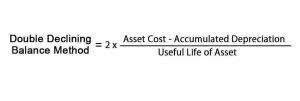
Our dedicated experts research and test SMB solutions so you can make smart, confident decisions. With business.com+, members get dedicated support, exclusive deals and expert advice. Find out the definitions and see examples of fixed, variable and mixed expenses. Follow these tips what is business accounting to make sure you have enough liquid capital to keep growing.

How do small businesses use accounting?

The primary function of accounting is to maintain a systematic record of all financial transactions. This includes tracking income, expenses, assets, and liabilities in a structured and organized manner. Accountants analyze financial data and prepare financial reports to provide insights into business performance.
- Below is a break down of subject weightings in the FMVA® financial analyst program.
- This means that even if you haven’t received cash for a sale yet, it will still be recorded as revenue in your books.
- Auditors verify the accuracy and completeness of a business’ financial statements.
- Implementing effective budgeting and forecasting practices will empower you to take control of your business’s future success by making well-informed financial decisions.
- For example, if I close a deal and send the invoice, I record that sale before the payment hits my account.
- Small business accounting involves the systematic recording, analysis, and reporting of a company’s financial transactions.
Compliance with Legal and Regulatory Requirements
- Transfer business credits are limited to a 10-year span in which they can be considered equivalent to a KU School of Business course and satisfy any corresponding requirement.
- For example, if I purchase a laptop that I use to deliver sales-related work, I don’t expense the full cost upfront.
- Accounts payable (AP) and accounts receivable (AR) are two fundamental account types in accounting, particularly in the double-entry bookkeeping system, that handle company transactions.
- Whether you’re a new entrepreneur getting your first business off the ground or an experienced business owner, navigating company finances can be tough.
- •Manufacturing companies buy materials, convert them into products, and then sell the products to other companies or to the final consumers.
- Accounting and bookkeeping are two equally important business functions, but they are not the same.
For anyone in sales, this is your top-line number — the total brought in from closed deals, product sales, or service packages. It’s not profit, but it’s often the first number clients and stakeholders care about when measuring sales performance. Your revenue is the total amount of money collected in exchange for goods or services before any expenses are taken out. When I invest in a sales tool or take out a line of credit to fund a new campaign, it’s a liability until I pay it off. In a service-based business like mine, inventory shows up in digital form — like pre-made templates, training materials, or productized offers.
You’re all set!
A company’s financial statements prepared using consistent accounting policies enable comparison with previous years or competitors. Accountants play a crucial role in budgeting and forecasting activities. They analyze historical financial data, market trends, and business goals to create realistic budgets and financial forecasts. These tools help businesses plan for future expenses, allocate resources effectively, and evaluate performance against targets. A income summary certified public accountant (CPA) can prepare taxes on behalf of an individual or corporation and conduct audits, among other responsibilities. While each state sets different CPA licensure requirements, many expect at least 150 hours of coursework before you can take the exam.
- A bachelor’s of accounting is a great first step to getting an entry-level job in a field with lots of growth and earning potential.
- This will help you decide which accounting software meets your needs best.
- And if you send invoices or pay bills with your software, the numbers should sync automatically with your ledger.
- With business.com+, members get dedicated support, exclusive deals and expert advice.
- Moreover, keeping accurate records helps ensure your business is prepared to file taxes, present information to investors or even apply for a loan.

The coursework will typically help students prepare for various jobs in accounting and finance. Small business accountants are professionals, often Certified Public Accountants (CPAs), who have the experience and knowledge to help owners navigate through their financial records. Depending on the size and needs of the business, these accountants may work on a monthly, quarterly or annual basis. While larger companies often keep accountants on staff, small businesses typically contract with an accounting firm or independent accountant who offers the services they need.
Record transactions
Deals with tax-related issues, ensuring that the business complies with tax laws, prepares tax returns, and plans tax strategies. Comparability and Understandability are secondary characteristics, supporting the primary qualities by Online Bookkeeping making financial data more accessible and useful to a wider range of users. Timeliness refers to providing financial information at the right time, ensuring it is available for decision-making when needed. Information that is outdated loses its relevance and may not be useful for stakeholders.